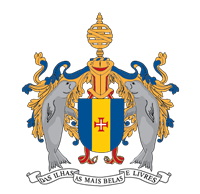Structure and election
The Legislative Assembly of Madeira is composed of deputies, elected by universal, direct and secret suffrage, by constituencies. According to the Electoral Law, the regional parliament has 47 deputies elected in a single regional constituency. Voters are Portuguese citizens registered in the voter registration of any municipality in the Madeiran archipelago.
Committees
Following the Portuguese parliamentary system in the Legislative Assembly there are Permanent Specialized Committees, with specific competences, and there may be Occasional Committees, with their own competences, the latter are created for a limited time and aim to fulfil a certain function that culminates with the presentation of a report describing the work carried out, containing the respective conclusions, including Inquiry Committees. [4]
| Official Numbering | Permanent Specialized Committee | Additional Competences |
|---|
| I | General Politics and Youth | European Union, Madeiran Communities Abroad, Local Authorities and Youth |
| II | Economy, Finances and Tourism | Planning, Transportation and Innovation |
| III | Natural Resources and Environment | Agriculture, Fishery, Husbandry and Forestry |
| IV | Housing and Public Buildings | Territorial Planning |
| V | Health and Social Affairs | Civil Protection |
| VI | Education, Sports and Culture | Science |
| VII | Civil Service, Administration and Employment |
Architecture
In 1976, the beginning of the I Legislature and until December 4, 1987, the date of the inauguration of the current facilities, the Assembly's services were based in the building of the former Junta Geral, on Avenida Zarco.
The new headquarters was installed in the Old Customs of Funchal building, classified as a National Monument. The building's restoration project, then vacant, was carried out by the architect Raul Chorão Ramalho. [5]
Leaning against the old Manueline staircase to the east of the building, is the Chapel of Santo António da Mouraria, founded in 1714.
This page is based on this
Wikipedia article Text is available under the
CC BY-SA 4.0 license; additional terms may apply.
Images, videos and audio are available under their respective licenses.


